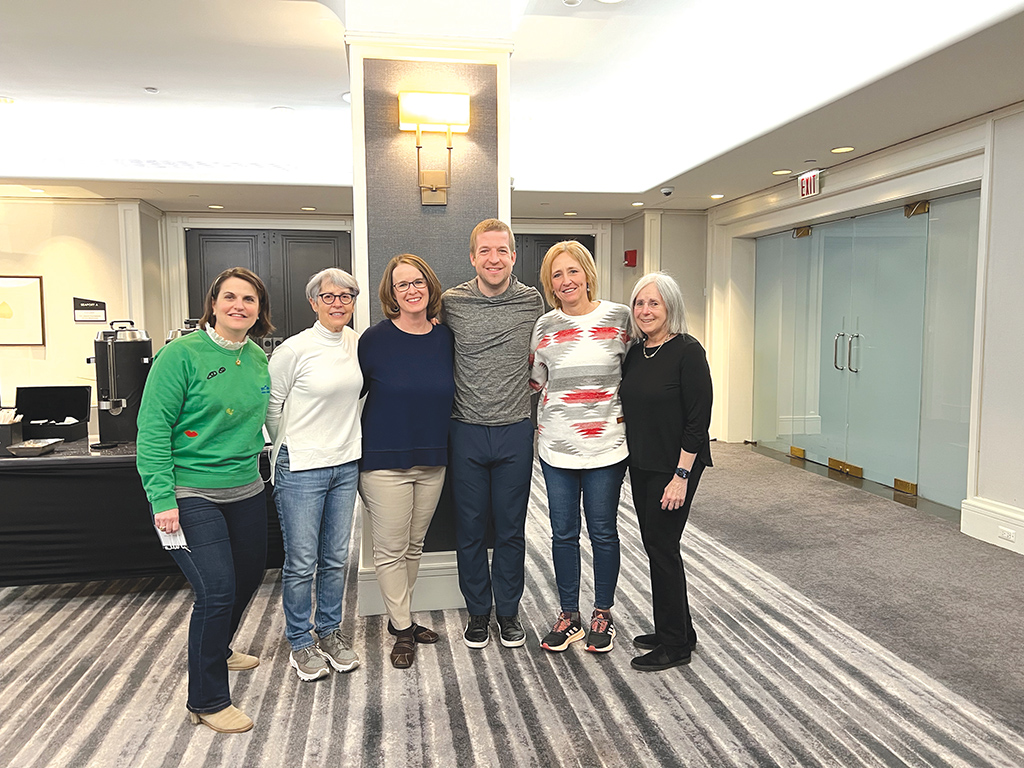BY NOAH GRIFFITH
FOR THE OBSERVER
OPELIKA —
Last week, two teachers from Opelika Middle School — eighth-grade English teacher Kate Gholston and sixth-grade history teacher Tricia Skelton — accompanied teachers from across nine states on a three-day program that trains educators on teaching about the Holocaust.
The intensive, academic seminar took place in New Jersey from Jan. 14 to 16 and is put on by the Jewish Foundation for the Righteous (JFR).
JFR selected 22 teachers to attend the seminar, including the two Opelika educators who have, for years, been involved with the organization.
Skelton said the Holocaust is a crucial topic for students to understand, and JFR has helped to make this difficult conversation easier to explain to children.
“When I moved up to sixth grade from teaching elementary school, I was blown away at what the kids were asking,” said Skelton, a 28-year-old teacher. “I wasn’t as well prepared (to teach about the Holocaust) as I knew I should be. Just being involved with JFR has been amazing as far as building my knowledge and background on the Holocaust to bring back to the kids.”
The program consisted of preliminary readings, followed by lectures from 13 highly trained scholars in German history and the Holocaust.
Gholston and Skelton both said being involved with JFR has prepared them as teachers, as well as made them better and more empathetic people. Following days that often get filled with paperwork, lesson plans and grading papers, the teachers said they returned from the seminar “revitalized.”
“I just feel like it reminds me what’s important,” Skelton said. “You want to have kids that can eventually go out into the world and be successful and critical thinkers — just be empathetic and caring for their fellow man. Just having that personal connection with history, I think, draws them in.”
Nearly 78 years after the Holocaust came to an end, Gholston and Skelton are still using the tragic event to help students build character and learn the importance of history and adapting from the past.
They said the JFR programs change in topic each year, highlighting the different impacts the Holocaust had across the globe. This year’s seminar focused on Ukraine and the economic impact of the Holocaust. While this is information the teachers say might not have a huge impact on what they teach in their classrooms, it will make a difference in the Opelika City school system as a whole, Gholston explained.
“This is a school very big on sharing and working together, so I can take it to my English department, and we can also share it with high school teachers,” Gholston said. “They get into more detail in ninth and 11th grades. So, it’s just a matter of taking what we’re given and paying it forward.”
According to Gholston, JFR taught them that when teaching middle schoolers about the Holocaust, the goal is to foster a personal connection between the students and the stories of people in the Holocaust.
The teachers said they don’t want to show detailed images or stories, but they want to help the students understand that the victims of the Holocaust were people just like them.
Preventing the “shock factor” from overshadowing human interest is key, they said, and they do that by utilizing rescuer stories on the JFR website, the Holocaust Museum in Washington, D.C., and a book called “Salvaged Pages” by Alexandria Zapruder — which consists of diary entries from the Holocaust — to bring to life the emotion and reality of the situation.
Along with the information helping teachers teach tough subjects, Gholston and Skelton said the program provides them with a morale boost that motivates them to do their jobs to the best of their abilities.
“The JFR are remarkable in providing resources and scholars that we can learn from,” Skelton said. “It’s nice to be appreciated and valued, not only for your profession, but for your ability to think critically. They value what we do, and that’s probably the biggest takeaway that the JFR has given me.”

